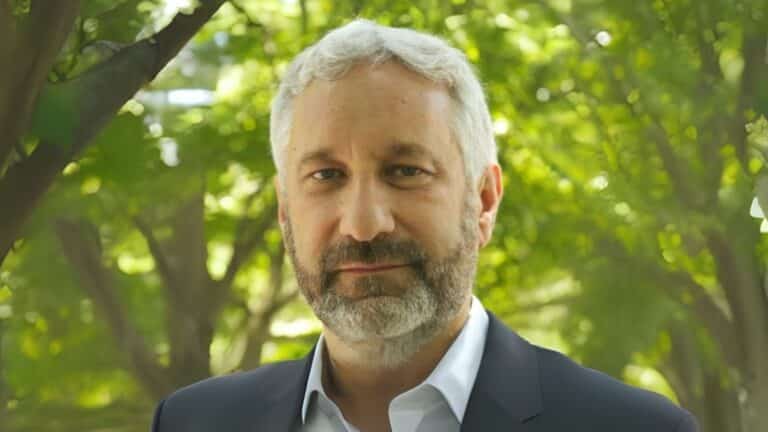This website uses cookies as well as similar tools and technologies to understand visitors’ experiences. By continuing to use this website, you consent to Columbia University’s usage of cookies and similar technologies, in accordance with the Columbia University Website Cookie Notice.
Explore Our Work
Our work is committed to independent and nonpartisan research that meets the high standards of academic integrity and quality at Columbia University.
By Topics
- Artificial Intelligence
- Climate Change
- Critical Minerals
- Energy for Development
- Energy Justice
- Energy Markets
- Energy Policy
- Energy & Public Health
- Energy Security
- Finance & Economics
- Fossil Energy
- Geopolitics
- Hydrogen
- Industrial Decarbonization
- Innovation & Technology
- Natural Gas
- Nuclear Energy
- Oil
- Power Sector
- Renewable Energy
- Trade Policy
- Transportation
By Regions
Initiatives
Our initiatives and programs are designed to address critical needs in key focus areas around energy and climate policy.
Initiatives
Programs
News
Explore our expert insights and analysis in leading energy and climate news stories.
Energy Explained
Get the latest as our experts share their insights on global energy policy.
How AI Growth Can Hyper-Scale Energy Equity and Affordability
Artificial intelligence is driving a massive technological transformation that is already reshaping many aspects of daily life.

Podcasts
Hear in-depth conversations with the world’s top energy and climate leaders from government, business, academia, and civil society.
A Changing Atmosphere at the Upcoming UN Climate Summit
The ten years since the Paris Agreement was signed at the UN Climate Change Conference, COP 21, have been the ten hottest years on record. And the outcome...

Events
Find out more about our upcoming and past events.
IEA Medium-Term Gas Market Report
Global gas markets are set to undergo major changes by the end of the decade, with the coming wave of liquefied natural gas (LNG) production capacity poised to...

About Us
We are the premier hub and policy institution for global energy thought leadership. Energy impacts every element of our lives, and our trusted fact-based research informs the decisions that affect all of us.
About
Overview
The Center on Global Energy Policy is committed to independent and nonpartisan research that meets the high standards of academic integrity and quality at Columbia University.
MIssion
What We Do
We advance smart, actionable, and evidence-based energy and climate solutions through research, education, and dialogue.
People
Our Team
Meet our staff and senior energy experts from government, academia, industry, and nongovernmental organizations.
- FEATURED Celebrating a Decade
- PublicationsOUR WORK
By Topics
- Artificial Intelligence
- Climate Change
- Critical Minerals
- Energy for Development
- Energy Justice
- Energy Markets
- Energy Policy
- Energy & Public Health
- Energy Security
- Finance & Economics
- Fossil Energy
- Geopolitics
- Hydrogen
- Industrial Decarbonization
- Innovation & Technology
- Natural Gas
- Nuclear Energy
- Oil
- Power Sector
- Renewable Energy
- Trade Policy
- Transportation
By Regions
- Our PeopleMEET OUR EXPERTS
- INITIATIVESALL INITIATIVES & PROGRAMS
Initiatives
Programs
- NEWSALL NEWS
- Newsroom
- Op-eds & Essays
- UPDATESEvents
- Blog
- Podcasts
- AboutOverview
- What We Do
- Our Team
- Advisory Board
- Faculty Advisory Committee
- Independent Research
- Columbia University Partners
- Donate
- Contact
- Partners
Alex Halliday
Director of Columbia University’s Earth Institute

Biography
Alex N. Halliday is the Director of Columbia University’s Earth Institute. He joined the Earth Institute in April 2018, after spending more than a decade at the University of Oxford, during which time he was dean of science and engineering.
With about 400 published research papers, Halliday has been a pioneer in developing mass spectrometry to measure small isotopic variations in everything from meteorites to seawater to living organisms, helping to shed light on the birth and early development of our solar system, the interior workings of the Earth, and the processes that affect Earth’s surface environment.
His scientific achievements have been recognized through numerous awards, including the Murchison Medal of the Geological Society, the Bowen Award and Hess Medal of the American Geophysical Union, the Urey Medal of the European Association of Geochemistry, and the Oxburgh Medal of the Institute of Measurement and Control. He is a Fellow of the UK’s Royal Society and Foreign Associate of the US National Academy of Sciences.
Halliday has also helped to lead a variety of distinguished scientific societies and advisory panels. He is the former Vice President of the Royal Society and former President of the Geochemical Society. He has served as an external board member for Britain’s Natural Environment Research Council, the Max Planck Society, London’s Natural History Museum, the American Geophysical Union, and more.
As a professor in Columbia’s Department of Earth and Environmental Sciences, Halliday divides his time between Columbia’s Morningside campus and his geochemistry lab at Lamont-Doherty Earth Observatory.
Sign Up Today
Get the latest news and research on energy & climate policy.
Subscribe now
"(required)" indicates required fields